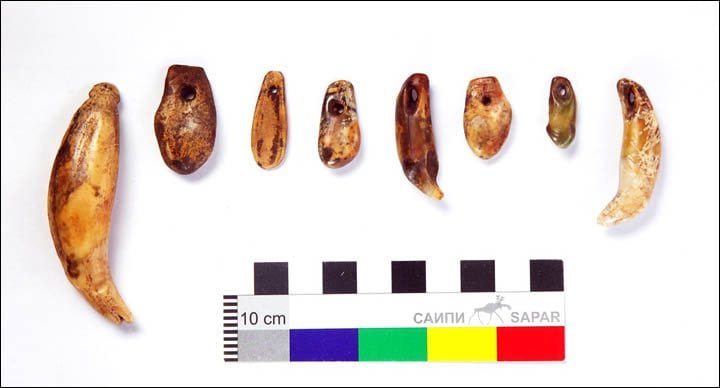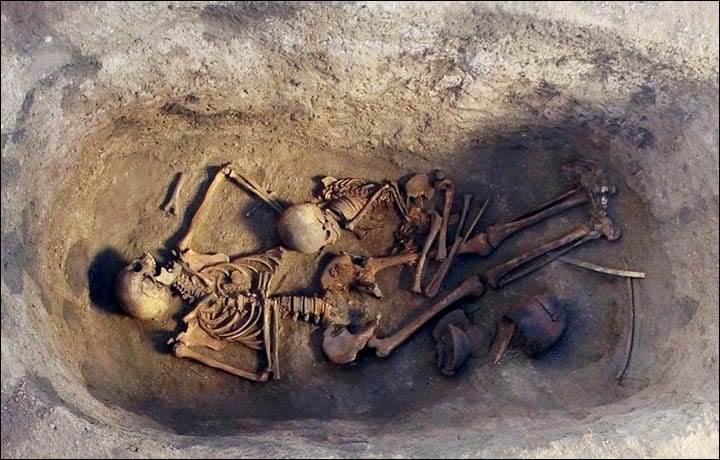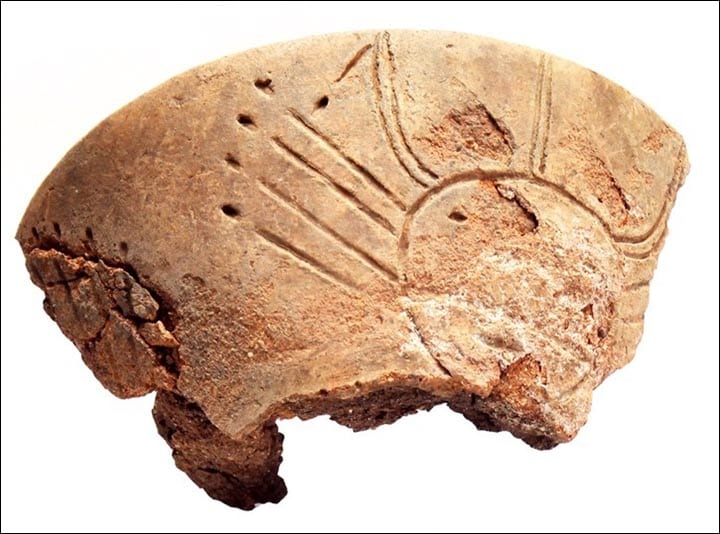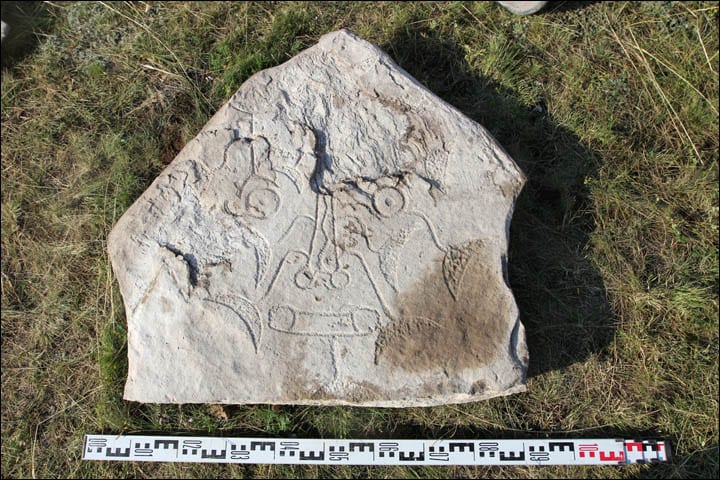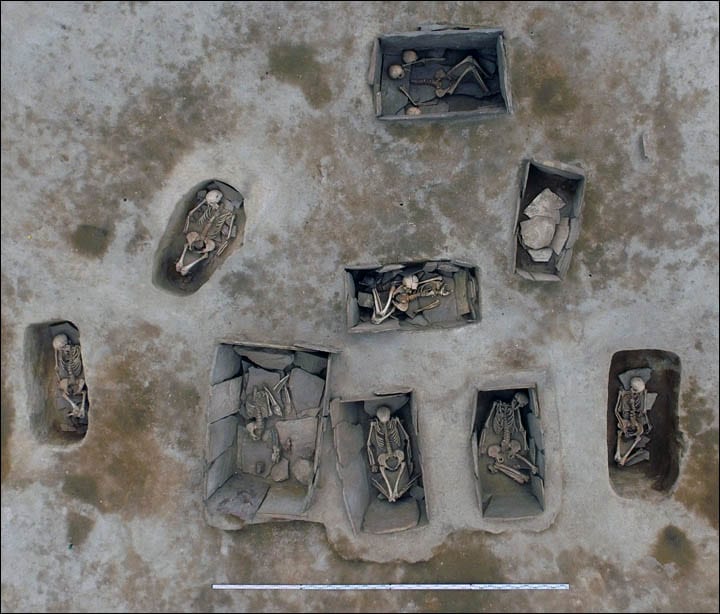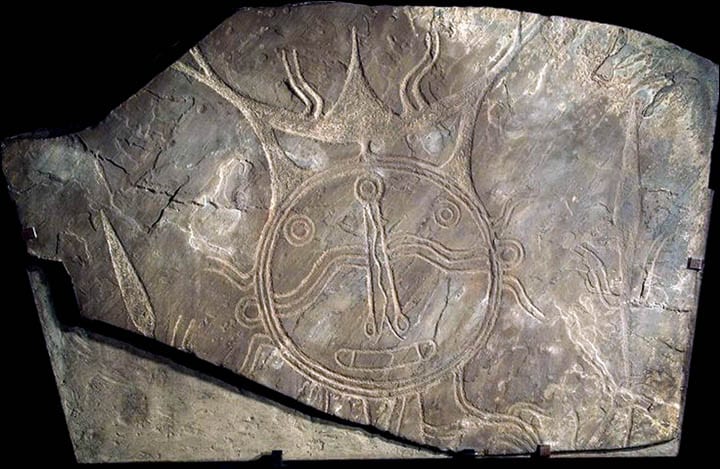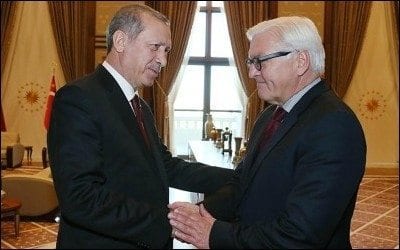WHAT İS FETHULLA GÜLEN?, by F. William Engdahl, for NEO Bakalım bunu okuyup, anlayan olacak mı?
WHAT İS FETHULLA GÜLEN?

by F. William Engdahl, for NEO
Since the failed coup attempt in Turkey of July 15 there has been much speculation in western media that it in fact was all engineered by President Recep Tayyip Erdoğan to provide him with the pretext to impose emergency rule and to jail any and all opposition to his rule. At this point evidence still suggests that that was not at all the case. Rather, as I wrote at the time when it was clear the coup attempt was collapsing, it was a coup initiated by the CIA acting through their primary asset inside Turkey, the networks of their fugitive Turkish asset Fethullah Gülen. When we examine more closely “what” is Fethullah Gülen he is anything but the grandfatherly image of a 75-year-old soft-spoken Islamic moderate, scholar and Imam. His networks have been called the most dangerous in Germany by Islamic experts and have been banned in several Central Asian countries. Now, too, in Turkey. What’s becoming clear is that the failed coup was in fact a dry-run, a dress rehearsal by Gülen’s controllers in Langley to see how Erdogan would react, in order to recalibrate and prepare for a more serious attempt in the future. Washington was not at all happy with the foreign policy turn of Erdoğan turning to reconcile with Russia and possibly also with Syria’s Assad.
Fethullah Gülen is not a “who” but, rather, it is a “what.” The what is one of the most extensive and elaborate surrogate warfare networks ever created by the United States intelligence community, spanning countless nations including the United States and Germany, as well as the historic Turkic regions of Central Asia from Turkey up to the Uyghur peoples of China’s oil-rich Xinjiang Autonomous Province.
Fethullah Gülen’s Spider Web
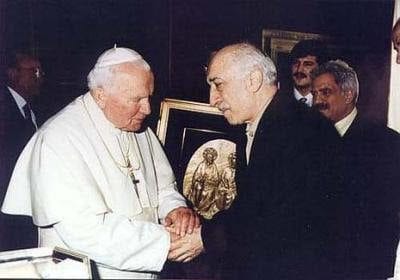
The following draws on research for my book, The Lost Hegemon: Whom the gods would destroy. I begin with a quote from a Gülen speech to his followers when he was still in Turkey in the 1990’s:
“You must move in the arteries of the system without anyone noticing your existence until you reach all the power centers…You must wait for the time when you are complete and conditions are ripe, until we can shoulder the entire world and carry it…You must wait until such time as you have gotten all the state power…in Turkey…Until that time, any step taken would be too early—like breaking an egg without waiting the full forty days for it to hatch.” Imam Fetullah Gülen, in a sermon to followers in Turkey
As they were deploying Osama bin Laden’s Arab Mujahideen “holy warriors” into Chechnya and the Caucasus during the 1990s, the CIA, working with a network of self-styled “neo-conservatives” in Washington, began to build their most ambitious political Islam project ever.
It was called the Fethullah Gülen Movement, also known in Turkish as Cemaat, or “The Society.” Their focus was Hizmet, or what they defined as the “duty of Service” to the Islamic community. Curiously enough, the Turkish movement was based out of Saylorsburg, Pennsylvania. There, its key figure, the reclusive Fethullah Gülen, was allegedly busy building a global network of Islam schools, businesses, and foundations, all with untraceable funds. His Gülen Movement, or Cemaat, has no main address, no mailbox, no official organizational registration, no central bank account, nothing. His followers never demonstrated for Sharia or Jihad—their operations were all hidden from view.
In 2008, US Government court filings estimated the global value of Gülen’s empire at anywhere between $25 and $50 billion. No one could prove how large as there were no independent audits. In a US Court testimony during the hearing on Gülen’s petition for a special US Green Card permanent residence status, one loyal Cemaat journalist described the nominal extent of Gülen’s empire:
The projects sponsored by Gülen-inspired followers today number in the thousands, span international borders and…include over 2000 schools and seven universities in more than ninety countries in five continents, two modern hospitals, the Zaman newspaper (now in both a Turkish and English edition), a television channel (Samanyolu), a radio channel (Burc FM), CHA (a major Turkish news agency), Aksiyon (a leading weekly news magazine), national and international Gülen conferences, Ramadan interfaith dinners, interfaith dialog trips to Turkey from countries around the globe and the many programs sponsored by the Journalists and Writers Foundation. In addition, the Isik insurance company and Bank Asya, an Islamic bank, are affiliated with the Gülen community.
Bank Asya was listed among the Top 500 Banks in the world by London’s Banker magazine. It had joint-venture banking across Muslim Africa, from Senegal to Mali in a strategic cooperation agreement with the Islamic Development Bank’s Senegal-based Tamweel Africa Holding SA. Zaman, which also owns the English-language Today’s Zaman, is the largest daily paper in Turkey.
By the late 1990s, Gülen’s movement had attracted the alarm and attention of an anti-NATO nationalist wing of the Turkish military and of the Ankara government.
After leading a series of brilliant military campaigns in the 1920s to win the Independence War after World War I, Kemal Ataturk established the modern Turkish state. He launched a series of political, economic, and cultural reforms aimed at transforming the religiously-based Ottoman Caliphate into a modern, secular, and democratic nation-state. He built thousands of new schools, made primary education free and compulsory, and gave women equal civil and political rights, and reduced the burden of taxation on peasants.
Gülen and his movement aim at nothing less than to roll-back the remains of that modern, secular Kemalism in Turkey, and return to the Caliphate of yore. In one of his writings to members, he declared, “With the patience of a spider we lay our net until people get caught in it.”
In 1998, Gülen defected to the US shortly before a treasonous speech he had made to his followers at a private gathering was made public. He had been recorded calling on his supporters to “work patiently and to creep silently into the institutions in order to seize power in the state,” treason by the Ataturk constitution of Turkey.
‘Islamic Opus Dei’
In 1999, Turkish television aired footage of Gülen delivering a sermon to a crowd of followers in which he revealed his aspirations for an Islamist Turkey ruled by Sharia (Islamic law), as well as the specific methods that should be used to attain that goal. In the secret sermon, Gülen said,
You must move in the arteries of the system without anyone noticing your existence until you reach all the power centers…until the conditions are ripe, they [the followers] must continue like this…You must wait for the time when you are complete and conditions are ripe, until we can shoulder the entire world and carry it…You must wait until such time as you have gotten all the state power, until you have brought to your side all the power of the constitutional institutions in Turkey…Until that time, any step taken would be too early—like breaking an egg without waiting the full forty days for it to hatch. It would be like killing the chick inside… Now, I have expressed my feelings and thoughts to you all—in confidence…trusting your loyalty and secrecy.”
When Gülen fled to Pennsylvania, Turkish prosecutors demanded a ten-year sentence against him for having “founded an organization that sought to destroy the secular apparatus of state and establish a theocratic state.”
Gülen never left the United States after that, curiously enough, even though the Islamist Erdoğan courts later cleared him in 2006 of all charges. His refusal to return, even after being cleared by a then-friendly Erdoğan Islamist AKP government, heightened the conviction among opponents in Turkey about his close CIA ties.
Gülen was charged in 2000 by the then secular Turkish courts of having committed treason. Claiming diabetes as a medical reason, Fethullah Gülen had managed to escape to a permanent exile in the United States, with the help of some very powerful CIA and State Department friends before his indictment was handed down. Some suspected he was forewarned.
CIA Gives Wolf Sheep’s Clothing
Unlike the CIA’s Mujahideen Jihadists, like Hekmatyar in Afghanistan or Naser Orić in Bosnia, the CIA decided to give Fethullah Gülen a radically different image. No blood-curdling, head-severing, human-heart-eating Jihadist, Fethullah Gülen was presented to the world as a man of “peace, love and brotherhood,” even managing to grab a photo op with Pope John Paul II, which Gülen featured prominently on his website.
Gülen and the late Pope John Paul II in Rome in 1998, posing as a man of peace and ecumenical harmony.
Once in the US, the Gülen organization hired one of Washington’s highest-paid Public Relations image experts, George W. Bush’s former campaign director, Karen Hughes, to massage his “moderate” Islam image.
The CIAs Gülen project centered on the creation of a New Ottoman Caliphate, retracing the vast Eurasian domain of the former Ottoman Turkic Caliphates.
When Gülen fled Turkey to avoid prosecution for treason in 1999, he chose the United States. He did so with the help of the CIA. At the time he US Government’s Department of Homeland Security and the US State Department both opposed Gülen’s application for what was called a “preference visa as an alien of extraordinary ability in the field of education.” They presented argument demonstrating that the fifth-grade dropout, Fethullah Gülen, should not be granted a preference visa. They argued that his background,
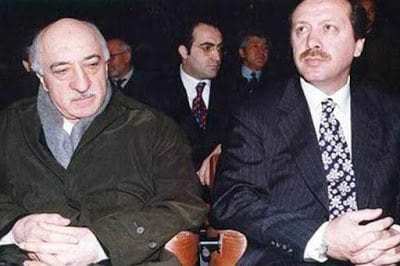
…contains overwhelming evidence that plaintiff is not an expert in the field of education, is not an educator, and is certainly not one of a small percentage of experts in the field of education who have risen to the very top of that field. Further, the record contains overwhelming evidence that plaintiff is primarily the leader of a large and influential religious and political movement with immense commercial holdings.”
Until an open clash in 2013, Fetullah Gülen (left) was the éminence grise behind Recep Erdoğan’s AK Party; Gülen is widely branded in Turkey as a CIA asset
However, over the objections of the FBI, of the US State Department, and of the US Department of Homeland Security, three former CIA operatives intervened and managed to secure a Green Card and permanent US residency for Gülen. In their court argument opposing the Visa, US State Department attorneys had notably argued, “Because of the large amount of money that Gülen’s movement uses to finance his projects, there are claims that he has secret agreements with Saudi Arabia, Iran, and Turkic governments. There are suspicions that the CIA is a co-payer in financing these projects.”
The three CIA people supporting Gülen’s Green Card application in 2007 were former US Ambassador to Turkey, Morton Abramowitz, CIA official George Fidas and Graham E. Fuller. George Fidas had worked thirty-one years at the CIA dealing, among other things, with the Balkans. Morton Abramowitz, reportedly also with the CIA, if “informally,” had been named US Ambassador to Turkey in 1989 by President George H.W. Bush. Sibel Edmonds, former FBI Turkish translator and “whistleblower,” named Abramowitz, along with Graham E. Fuller, as part of a dark cabal within the US Government that she discovered were using networks out of Turkey to advance a criminal, “deep state” agenda across the Turkic world, from Istanbul into China. The network reportedly included significant involvement in heroin trafficking out of Afghanistan.
On leaving the State Department, Abramowitz served on the board of the US Congress-financed National Endowment for Democracy (NED) and was a cofounder, along with George Soros, of the International Crisis Group. Both the NED and International Crisis Group were implicated in various US “Color Revolutions” since the 1990s collapse of the Soviet Union.
Graham E. Fuller, the third CIA “friend” of Fethullah Gülen, had played a key role in the CIA’s steering Mujahideen and other political Islamic organizations since the 1980s. He spent 20 years as CIA operations officer in Turkey, Lebanon, Saudi Arabia, Yemen, and Afghanistan and was one of the CIA’s early advocates of using the Muslim Brotherhood and similar Islamist organizations to advance US foreign policy.
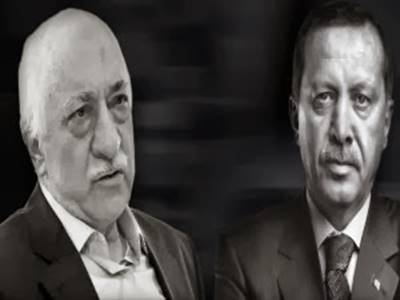
In 1982, Graham Fuller had been appointed the National Intelligence Officer for Near East and South Asia at CIA, responsible for Afghanistan, where he had served as CIA Station Chief, for Central Asia, and for Turkey. In 1986 Fuller became Vice-Chairman of the CIA’s National Intelligence Council, with overall responsibility for national level strategic forecasting.
Fuller, author of The Future of Political Islam, was also the key CIA figure to convince the Reagan Administration to tip the balance in the eight-year long Iran-Iraq war by using Israel to illegally channel weapons to Iran in what became the Iran-Contra Affair.
In 1988, as the Afghan Mujahideen war would down, Fuller “retired” from the CIA with rank as Deputy Director of the CIA’s National Council on Intelligence, to go over to the RAND Corporation, presumably to avoid embarrassment around his role in the Iran-Contra scandal for then Presidential candidate George H.W. Bush, Fuller’s former boss at CIA.
RAND was a Pentagon- and CIA-linked neoconservative Washington think tank. Indications are that Fuller’s work at RAND was instrumental in developing the CIA strategy for building the Gülen Movement as a geopolitical force to penetrate former Soviet Central Asia. Among his RAND papers, Fuller wrote studies on Islamic fundamentalism in Turkey, Sudan, Afghanistan, Pakistan, and Algeria, the “survivability” of Iraq, and the “New Geopolitics of Central Asia” after the fall of the USSR, where Fethullah Gülen’s cadre were sent to establish Gülen schools and Madrassas.
In 1999, while at RAND, Fuller advocated using Muslim forces to further US interests in Central Asia against both China and Russia. He stated, “The policy of guiding the evolution of Islam and of helping them against our adversaries worked marvelously well in Afghanistan against the Russians. The same doctrines can still be used to destabilize what remains of Russian power, and especially to counter the Chinese influence in Central Asia.” By all evidence, Fuller and his associates intended their man, Fethullah Gülen, to play perhaps the major role, in their operations to “destabilize what remains of Russian power, and especially to counter the Chinese influence in Central Asia.”
CIA career man Graham E. Fuller was a key backer of Fetullah Gülen and architect of the CIA Islam strategy since Afghanistan’s Mujahideen.
In 2008, shortly after he wrote a letter of recommendation to the US Government asking to give Gülen the special US residence visa, Fuller wrote a book titled The New Turkish Republic: Turkey as a Pivotal State in the Muslim World. At the center of the book was praise for Gülen and his “moderate” Islamic Gülen Movement in Turkey:
Gülen’s charismatic personality makes him the number one Islamic figure of Turkey. The Gülen Movement has the largest and most powerful infrastructure and financial resources of any movement in the country… The movement has also become international by virtue of its far-flung system of schools…in more than a dozen countries including the Muslim countries of the former Soviet Union, Russia, France and the United States.
CIA and Gülen in Central Asia
During the 1990s Gülen’s global political Islam Cemaat spread across the Caucasus and into the heart of Central Asia all the way to Xinjiang Province in western China, doing precisely what Fuller had called for in his 1999 statement: …destabilize what remains of Russian power, and especially to counter the Chinese influence in Central Asia.”
Gülen’s organization had been active in that destabilizing with help from the CIA almost the moment the Soviet Union collapsed in 1991, when the nominally Muslim Central Asian former Soviet republics declared their independence from Moscow. Gülen was named by one former FBI authoritative source as “one of the main CIA operation figures in Central Asia and the Caucasus.”
By the mid-1990s, more than seventy-five Gülen schools had spread to Kazakhstan, Tajikistan, Azerbaijan, Turkmenistan, Kyrgyzstan, Uzbekistan, and even to Dagestan and Tatarstan in Russia amid the chaos of the post-Soviet Yeltsin era. In 2011, Osman Nuri Gündeş, former head of Foreign Intelligence for the Turkish MIT, the “Turkish CIA,” and chief intelligence adviser in the mid-1990s to Prime Minister Tansu Çiller, published a book that was only released in Turkish. Gündeş, then 85 and retired revealed that, during the 1990s, the Gülen schools then growing up across Eurasia were providing a base for hundreds of CIA agents under cover of being “native-speaking English teachers.” According to Gündeş, the Gülen movement “sheltered 130 CIA agents” at its schools in Kyrgyzstan and Uzbekistan alone. More revealing, all the American “English teachers” had been issued US Diplomatic passports, hardly standard fare for normal English teachers.
Today Gülen’s spider web of control via infiltration of the Turkish national police, military and judiciary as well as education is being challenged by Erdogan as never before. It remains to be seen of the CIA will be successful in a second coup attempt. If the model of Brazil is any clue, it will likely come after a series of financial attacks on the Lira and the fragile Turkish economy, something already begun by the rating agency S&P.
F. William Engdahl is strategic risk consultant and lecturer. He holds a degree in politics from Princeton University and is a best-selling author on oil and geopolitics.
Gönderen ZEKERİYA TÜMER zaman: 01:52











